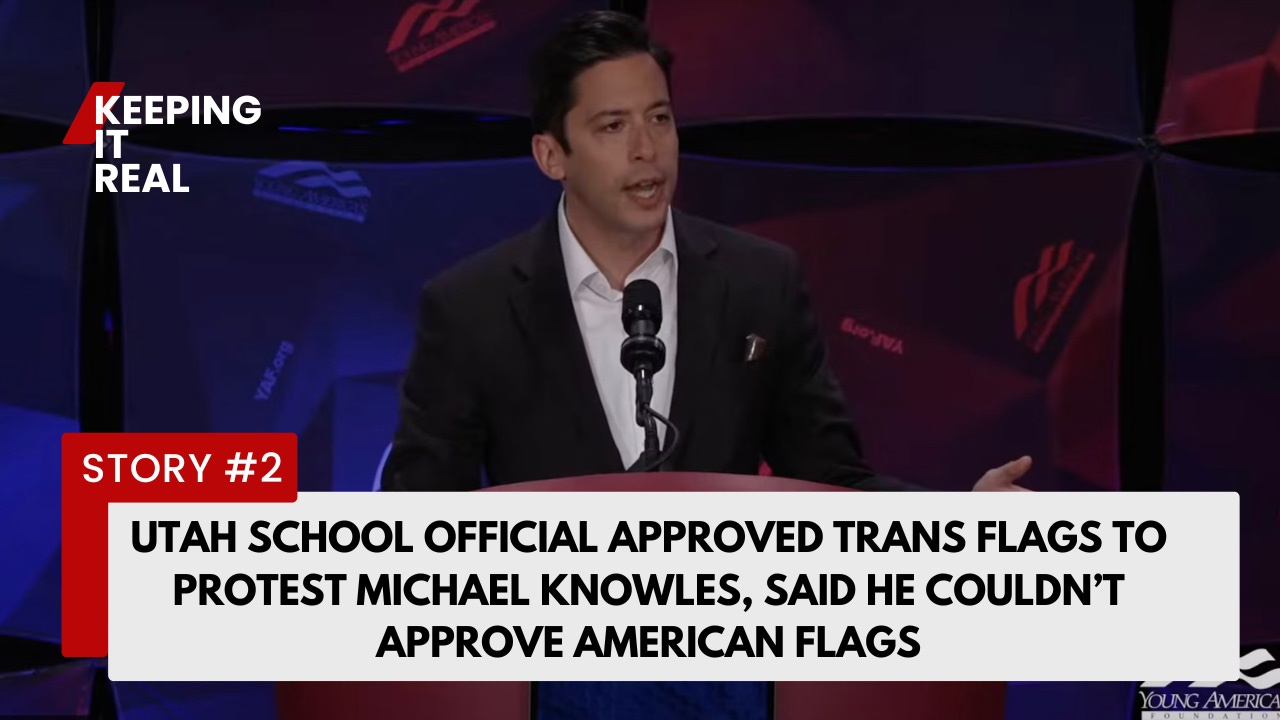Support my independent journalism so I can keep sending out this free newsletter every morning. It’s $5 a month; you can quit at any time. I walked away from a high-paying job in the MSM to go independent. Help me keep it going if you haven’t already done so.


WASHINGTON D.C- The pro-Palestinian, antisemitic protests on university campuses across the nation are funded by President Joe Biden’s own political donors — which could explain why he hesitates to condemn them and won’t investigate them.
Biden equivocated last month when asked to react to the protests, saying that he condemned the antisemitism but also condemned those “who don’t understand what’s going on with the Palestinians,” which puzzled observers. Research by NGO Monitor and others into the donors behind the protests has turned up familiar names from the Democratic Party bankroll — including George Soros’ Open Society Foundations and other liberal philanthropies. Click here to read more.

NASHVILLE, TN - When Daily Wire host Michael Knowles spoke last month at the University of Utah, he was met with a host of leftist protesters and university-approved transgender flags filling the building he was speaking in — a demonstration that was in part supported by the school faculty.
The protest took place as Knowles, who had been brought to campus by the Young America’s Foundation, gave a speech on the problems with transgender ideology on April 8 at the university. At the same time, Philip Osteen, the dean of Utah’s College of Social Work, reportedly extended the school’s Pride celebration so that it coincided with Knowles’ speech and approved for transgender and LGBT flags and banners to fill the building Knowles was set to speak in. Click here to read more.

WASHINGTON D.C. - The Biden administration has not publicly responded to new information that it put a hold on a shipment of U.S. ammunition to Israel.
Israeli officials told Axios that the ammunition shipment to Israel was stopped last week, which marks the first time since the Oct. 7 attack that the U.S. halted a weapons shipment intended for the Israeli military. The Department of Defense and State Department declined to comment to the Washington Examiner on the news. A National Security Council spokesperson declined to comment on the specifics as well but provided a statement on the U.S.’s general support for Israel. Click here to read more.

SYNDEY, AUSTRALIA - The Reserve Bank of Australia says a central bank digital currency could increase the “efficiency and resilience” of the payments system, by allowing money to be programmed and to settle transactions instantly on a blockchain system. However, the RBA remains unconvinced a CBDC is necessary to create such benefits, given alternative new forms of money are still emerging.
The RBA and Digital Finance Co-operative Research Centre warned more research is required to deal with legal, regulatory, technical and operational issues to ensure any eAUD operates safely, if one is created.
“Given the many issues that are yet to be resolved, any decision on a CBDC in Australia is likely to be some years away,” the RBA and DFCRC said in a report on 14 pilot projects published on Wednesday. Click here to read more.

NEW YORK, NY - Walgreens is struggling to keep a certain candy in stock after it went viral.
The drug store chain has had to limit sales of its wildly popular Gummy Mango peelable candy to one bag per customer, Walgreens confirmed to USA TODAY Thursday, though the limit is online only, a spokesperson with the company said.
The product is a part of Walgreens' Nice! brand and sells for around $1.99 on site and online.
“We’re really excited about the popularity of the Nice! Mango Gummy Candy,” Marty Esarte, vice president of Walgreens’ owned brands told TODAY. "Because of the success of the item, we’re currently expanding inventory of our mango item to 8,000 stores on May 22.” Click here to read more.




















